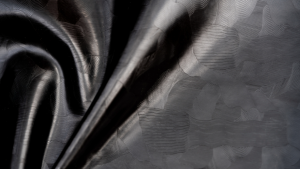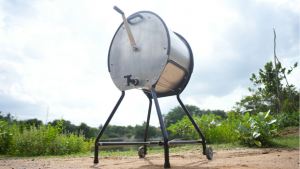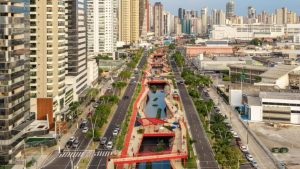
According to the United Nations, urbanisation combined with the growth of the world's population is likely to add another 2.5 billion people by 2050. Seeking to meet the needs of a global community that is increasingly urban, a company named NexLoop has created a system to sustainably serve the needs of urban farmers. Called AquaWeb, the prototype is inspired by webs crafted by cribellate orb weaver spiders which capture water fog from the air.
The unique system is able to passively capture water from the atmosphere.
It is the recipient of the 2017 Ray of Hope Prize from the Ray C. Anderson Foundation and the Biomimicry Institute. AquaWeb harnesses freely available rain as well as fog and uses passive strategies to distribute water so that urban farms - including greenhouses, indoor vertical farms, and container farms – can save energy and become more resilient to disturbances and disasters.
Each aspect of AquaWeb’s design was inspired by living systems.
Drawing inspiration from how drought-tolerant plants like the crystalline ice plant retain water to survive in arid environments, NexLoop was able to apply these lessons to their unique development. When it came to determining how best to distribute the system’s collected water, they looked to how mycorrhizal fungi transport fluid between the root systems of neighboring plants.

Finally, the NexLoop team looked to the dwarf honey bee’s hexagonal nest structure as an example of efficient modular design and modelled the system’s overall structure on the natural phenomenon.
“NexLoop is an impressive team across the board,” said John A. Lanier, executive director of the Ray C. Anderson Foundation. “They have a deep understanding of how biomimicry aids in the design process, and their plans for hyper local water capture and storage in urban settings could play a crucial role in scaling local, sustainable agriculture.”
To learn more about the AquaWeb, visit NexLoop’s website here.





